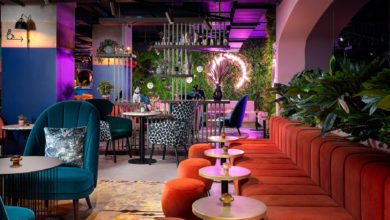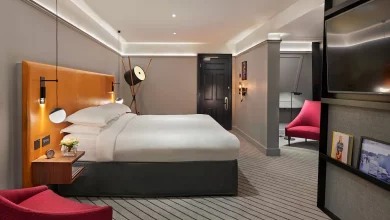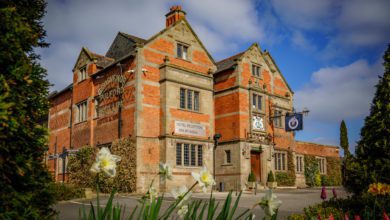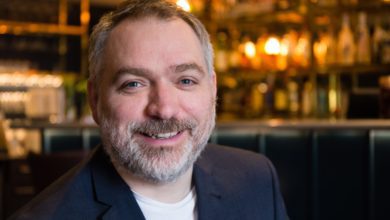The Other House: giving hospitality a residential feel
Naomi Heaton, founder and CEO of extended stay hotel brand, The Other House, tells us about her vision of merging the property sector with hospitality, how she caught ‘the property bug’, and how this could be a coup for both industries
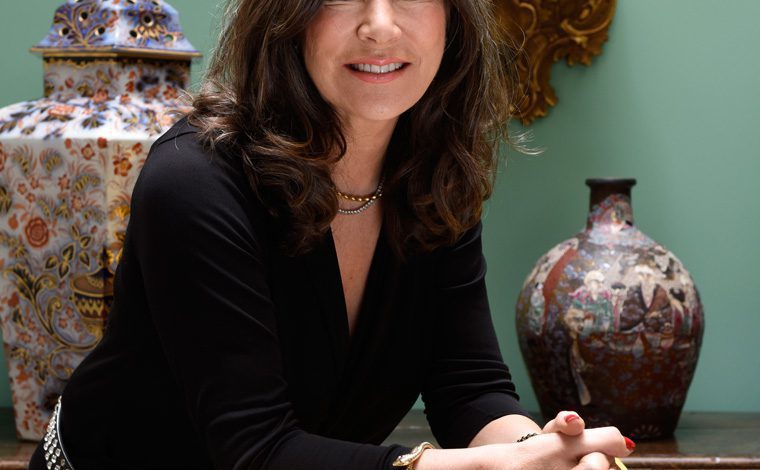
Can you tell us about your career leading up to The Other House?
I’m the founder and chief executive of The Other House, as well as co-owner in a joint venture with Dutch pension fund APG. I’ve had quite a varied career up to now and certainly wouldn’t have anticipated doing what I’m doing now, if you asked my younger self. After graduating from university, I went into advertising. I was really interested in the marketing and branding side of advertising, and I will say I was also attracted to the bright lights of London.
I joined advertising agency Leo Burnett and then moved on to roles such as board director. Whilst I was in advertising, I bought my first flat in Camden Town. I couldn’t see why people would rent a property; I thought it was more logical to have a mortgage than to pay rent, so I did everything I could to raise the money to buy that first property. I soon caught the property bug after that, so then I started (alongside what I was doing in advertising) buying properties, renovating them and then selling them.
Doing that, I realised I had a kind of talent for it in terms of space optimisation in terms of design, and I suppose I also got a really big kick out of it. I got to the point where I felt that, actually, I wanted to be able to do something on my own – I wanted to be doing something entrepreneurial, rather than working within an organisation. I also realised that there was a need within the market for overseas investors needing help finding a property, if they wanted to buy a particular one in central London. How did they go about doing that? And then how did they go about getting the contract to renovate it, and ultimately, manage it? To answer these questions, I set up LCP (London Central Portfolio), a property-finding agency that was probably the first of its kind in the UK to represent the buyer, rather than the seller.
I could see there was a need among people who were busy, high net worth delegators. When we buy our own homes, we think about property, but actually – particularly in the foreign market – however much you visit it, you’ll never know it from a residential point of view and what are the best places to live and which are the best streets, best floors, best buildings. LCP finds the best properties and the best prices to renovate and to let foreign customers manage these properties. We are essentially acting for the investor. We were treating residential properties as part of the asset class at a time when residential property wasn’t seen as an asset class. It wasn’t seen as a sector you’d invest in.
How did The Other House come about?
I could see over the years how the rental market was changing, so for example, one could see after 9/11 that the American market didn’t come over, that budgets tightened, and that corporations were renting out smaller properties – three-beds were no longer relevant, so it’d be two bedroom or one bedroom flats.
Then, during the financial crisis, there was another contraction in the size of desirable properties, but also people very much wanted to be in central London. If you’re an international tenant – and many of our tenants are international – you want to be where it’s all happening, because you’re only here for a year or two. And in fact, people who want to be more centrally located in the capital sacrifice space in order to achieve this, so properties also needed to be more and more interior design-oriented, and to appear more like lifestyle brands.
What I could also see is how tenants living in the digital age with the help of ever-increasing technology wanted everything instantly, so they wanted beautiful, aspirational, space-optimised flats with services at the click of a button. I thought, “well actually, what we’re renting is a bunch of hotel rooms”, so why don’t we give them what they want, which is a long-stay hotel.
That was the beginning of me looking at the property market and the hospitality market in a different way; I could see that if you’re a long-staying resident in a property, you have to feel like you’re part of the neighbourhood and like you have a sense of place. If you’re in a normal PRS (Private Rented Sector) outlet, you probably don’t have any service and you don’t necessarily have any amenities. On the other hand, beautiful hotels have lots of service in this day and age – probably too much – but you run into the opposite problem: hotels don’t feel like home and you very much feel like a visitor. It’s a revolving door, it’s in and out when you go to a hotel, no matter how grand it is. I could see the opportunity to mash together the best of hotel living with the best of residential living to create a space where you could stay for a day, a week, a month or a year.
We’re really disrupting the hospitality market, which has always been a very transient market. We didn’t want that, we wanted to create a place where you felt at home, where you felt in control. It didn’t mean it was going to be home, but it was going to be somewhere where you felt comfortable to be and do what you wanted to do.
And of course, it’s called The Other House quite simply because it’s meant to be your other house. We opened The Other House South Kensington last July and we’re now developing The Other House Covent Garden. We’re just applying for planning permission for The Other House Belgravia.
What are your daily responsibilities as founder and CEO?
I set it up, but we’ve only really been trading for about eight months and only just bought our first asset. Although we are extremely large as a company – owning three primary assets in central London and creating extremely large residence clubs – we are still in the early stages of positioning our brand values and developing our consumer base.
In my role I am the custodian of the brand, ensuring that every touchpoint physically or psychologically is done right and exactly how we had envisaged the brand would be like to begin with. There isn’t a rule book for what we’re doing also, so we write the rules and operational procedures as we go along; they’re things that you can always finesse and polish.
My role is also to inspire the team, to ensure that they understand what we’re trying to do, and to help them deliver that. Our team is completely and utterly dedicated to the brand and believe passionately in what we’re doing and love the idea that they are partners, we are disrupting the hospitality market, and changing the hospitality market for good.
I’m also responsible for making sure we make the right corporate decisions and that we report our corporate decisions to our main stakeholders, and that we are delivering what we said we would in terms of our business model, and financial output.
Has The Other House concept been tried elsewhere in the world, and what success has it had?
The Other House is absolutely unique; you can buy a package of nights across the year at a special rate, which you can then use as and when you want to cross the year, so we’re very much catering for those people who lead a nomadic existence. Our aim from a user point of view is 50% of our club flat nights will be for our medium and long stays, we could be seeing up to two years. And then 50% would be the transient stays. We are looking at the corporate and leisure market, the people who come for culture and for work. That’s a really nice mix of guests, which is why I think that what we offer is very different and quite unique.
There are other brands in other international markets that may be doing something similar, of course. People may stay in hotels and take the penthouse suite and live there all their life – Mrs Thatcher famously died at the Ritz. What we do slightly reminds me of the old Chelsea Hotel in New York , which was a place where a lot of major celebrities used to hang out. they would stay for a long time and sometimes would make it their home, which resonates with me.
How has your experience in residential property helped your entry into hospitality?
I’ve learned a huge amount from hospitality. The property market and hospitality are very different, but they do overlap. The world of hotels and hospitality is unique because when you walk through the front doors, you have to look after the whole ecosystem – everything needs to interact as you look after guests while they’re with you. When a person moves into one of our flats, it is made beautiful, fresh, functional, they have everything they need, and then they are on their own, essentially.
Running a hospitality operation is immensely complex – actually far, far more complex than anything in the residential sector, because you’re having to take care of people around the clock and people have so many different needs and requirements, all the while having to create a great experience. While I have learned a lot, there is still an enormous amount to learn, but what I bring from the residential sector has enabled us to give hospitality a residential feel to what we’re offering. That is quite different from any feeling you get when walking into a hotel, which I think is really valuable. Certainly, going in and looking at hotels and finding something which is much more residential, I think is the way forward.
With the London rental market being the way it is, what makes this a viable alternative?
There is obviously a lack of rental stock, and while we operate in central London currently, we want to move The Other House internationally to other global cities, which have similar characteristics to prime central London. Our proposition definitely provides an alternative in the rental market for those people who want other amenities. It is also not bound by ASDs (Additional Security Deposits), it runs on a hotel basis, so you can stay for any length of time that you wish to.
We’re also not ultra luxury, despite being ‘luxury lifestyle’, we’re not at the price points of five to seven star hotels. We are quite accessible for a lot of people in that respect and that’s how we want it to be. I think it’s an alternative for new people who are more mobile and I think it’s another way of living.
What’s next for the company?
What’s immediately happening is we are standing as a new brand and operation, as launching this new concept last year was a totally momentous task. This year, we are really refining what we’re doing and making sure it is the best that we can possibly make it.
Our biggest project this year is launching Covent Garden, and once that is opened, we’ll concentrate on Belgravia. Once they are all opened and running, The Other House will start to feel more like a brand with a much broader offering than just having the one asset in South Kensington.
I’m so absolutely delighted with the way it’s been received. People really love it, they say it’s different, it feels different, it looks different, and that it’s got a different vibe. We are continuing to make it better and even more fit for purpose.




